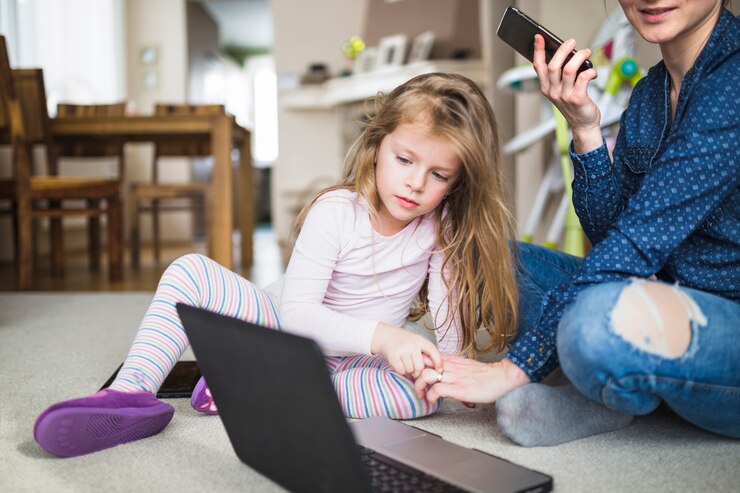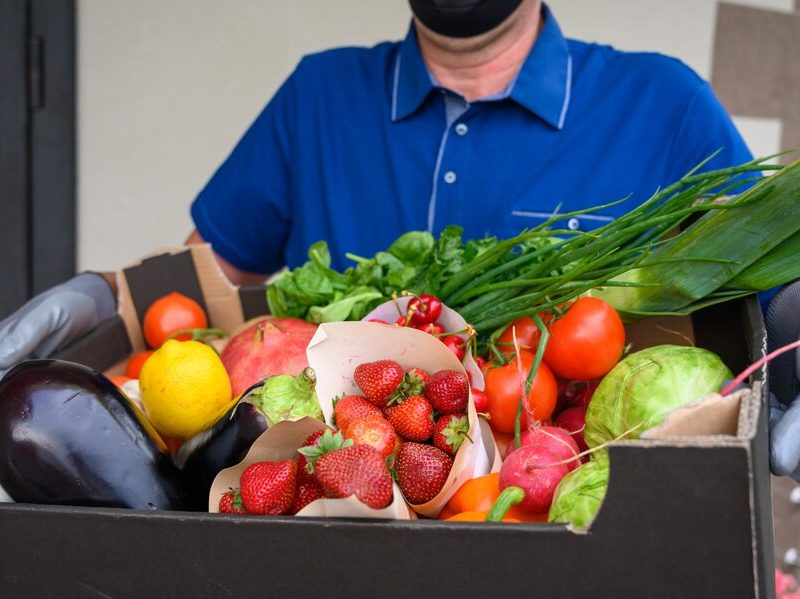The role of a parent or guardian has always had its trials but was also considered the highest form of calling. Unfortunately, with the current release of new technologies in the market, today’s parents are more reliant on applications to address most challenges regarding child-rearing. By 2024, the following are some of the trends that will shape the interaction between parents and the use of these digital tools. Starting with artificial intelligence and machine learning and ending with parenting apps that help build a community, this article provides insight into the most relevant trends that will gain momentum in 2024.
What is a Parenting App?
A parenting app is a new form of technology assistance where co-parenting individuals, who could be divorced or separated partners, share child-rearing responsibilities. It is like being the go-to source of information about all that has to do with shared custody. These apps feature aspects such as secure communication, a calendar to share working and family calendars, and a record of reimbursable expenses, including child care. It helps filter communication throughout, preventing all conflicts because everything is collected in one place.
The Rise of AI-Powered Parenting Apps
Artificial Intelligence (AI) is the new frontier in almost every field, and parenthood is no exception. Parenting applications fueled by AI are supposed to offer the best advice based on the information collected to help the parent make informed decisions about the child’s growth and health.
Personalized Child Development Insights
One of AI’s advantages to parenting apps is that it helps provide better recommendations for the proper development of the child. These apps may monitor different skills essential to the child’s growth and give suggestions and exercises that could help the child enhance specific aspects of development like speech, motor, and cognitive skills. Based on the information collected and the patterns identified, using AI, some apps can notify parents if the child is likely to give the application a concern by possibly developing a problem ahead of time.
Enhanced Learning Experiences
It also improves the educational applications that it presents to children. These apps are flexible, as they can adjust to fit a child’s pace and style of learning and present exciting and challenging lessons to the child. Teachers provide parents with a comprehensive report on their child’s progress, making parenting more accessible, as the parent can effectively support the child’s learning process.
Focus on Mental Health and Well-being
With the population learning more about mental health as an important issue, some parenting applications include components that focus on the psychological health of parents and children.
Mindfulness and Stress Management
These features consist of mindfulness exercises and stress reduction content in many parenting apps to help parents handle the high level of pressure that comes with parenting in this period. Some of these features that can be made available can be guided meditation sessions, practical tips on breathing, and work-life balance.
Emotional Support for Children
Some apps assist children with their psychological well-being, providing them with coping mechanisms when it comes to angry and emo NSSS. Parents also embrace technology, opting for applications that help children deal with their emotions and mental instabilities. These can include animated stories with happy endings that touch on the aspects of emotional intelligence and games that enhance positive thinking and even solution-finding.
Integration of Wearable Technology
Intelligent and innovative gadgets are incorporated into many parenting applications, enabling instantaneous data acquisition about the child’s health and activities.
Health Monitoring
Parents use other wearable technologies, like smartwatches and fitness trackers, to monitor physical activity, sleeping patterns, and even a child’s vital signs, including heart rate and temperature, from optional applications tailored for parenting. This data can help parents ensure that their child follows the proper diet or experiencing a particular symptom.
Safety Features
Aside from what has been discussed concerning health monitoring, wearable technology has a way of promoting a child’s safety. Options such as tracking the location and setting a geofenced area, if the child goes beyond this area, a notification is sent to the parents. This comes in handy, particularly during shopping malls or unsafe areas.
Community and Support Networks
Since parenting is a very challenging job, it can be very lonely at times, but new applications exist that help create communities that provide information, sharing of knowledge, and feelings of companionship.
Online Support Groups
More and more applications are now equipped with online Parents’ support groups where parents can exchange stories, seek advice, or provide support to other parents of children with disabilities. These communities are a source of support for parents struggling with various issues; they offer a platform to vent and seek assistance.
Expert Advice and Resources
Another critical aspect of numerous applications is the availability of expert advice. By enlisting the help of these websites, parents can get the best information from pediatricians and child psychologists in the event of raising questions. Furthermore, most apps provide diverse types of parenting information, such as articles, videos, and webinars on different parenting issues.
Sustainability and Eco-Friendly Parenting
People have become increasingly environmentally conscious, which is why many parents today want to raise their children in an eco-friendly manner. To meet this growing need, parenting apps are now starting to incorporate functions that will help them practice environmental conservationism.
Sustainable Product Recommendations
It can suggest greener options, such as diapers or toys, and this way, parents are empowered to make the right choices. These recommendations are often made after a comprehensive review of features and other users’ opinions on the recommended products.
Tips for Green Living
Some applications also include information and recommendations on improving people’s lives and supporting sustainable development. This may involve guidance on issues such as minimizing waste, maximizing water and energy use, and educating children about environmental issues.
Gamification of Parenting Tasks
Positive reinforcement programs and parental skills training can make mundane parenting tasks more enjoyable and engaging between parents and their young ones.
Reward Systems
Most applications have some form of motivation linked to achieving results or displaying positive behavior. For instance, the children could be given points for brushing their teeth or when they have done their homework, and the points earned could be exchanged for something desired. These applications can motivate the user through excitement and the feeling of accomplishing a task.
Interactive Learning Games
Other types of products that are also gradually appearing in children’s play include learning games. Such games can be focused on different fields, starting with mathematics and including subjects connected with science, emotional development, etc., so children can both have fun and benefit from them.
Customized Parenting Plans
Different families require different approaches to child-rearing, and with the invention of smart applications, specific plans for the two are being introduced in the market.
Tailored Schedules and Routines
Parents can design individual plans and proper schedules suitable for any family. These plans may cover meal timing, sleeping timing, physical activity, and even learning objectives and accomplishments to assist the parents in keeping track of these issues.
Specialized Support for Diverse Families
Every family is unique, and therefore, most of the apps include features that cater to different types of families, such as those headed by single parents, orphans, gay parents, parents with disabled children, and others. These approaches ensure that all parents develop easy routes to turn to for help and support.
The Role of Big Data in Parenting
Big data introduces new changes to parenting apps, highlights the potential to change the user interface, and suggests more accurate recommendations.
Data-Driven Insights
One of the advantages of stand-alone parenting apps is that they can use large databases to recognize patterns more effectively and offer their users better advice and recommendations. For example, information about ordinary sleep disorders enables one to devise new procedures for fostering better sleep patterns among children.
Privacy and Security Concerns
As more data is collected and used in more varied and precise ways, we find greater demands on privacy and security constraints. Parents must be confident that their children’s data collection is protected and used appropriately. The public has woken up to the reality that many app developers are tracking and collecting users’ data; hence, there is an emphasis on providing information on how this data is collected, stored, and used.
The Future of Parenting Apps: What to Expect
The advancement of technology in the following years also indicates that the future of parenting apps is promising. Here are some trends that need to be observed in the next few years.
Augmented Reality (AR) Experiences
It can be concluded that AR is likely to become one of the most essential elements in future parenting applications. That is where AR’s potential shines when it comes to learning, as this tool can make the lessons dramatic and turn the stories into something meaningful, which cannot be achieved with the help of conventional media only. Just picture reading a bedtime story with your child, and once you get to that part where there are certain characters and positions, they would appear from your chairs!
Voice-Activated Assistance
Features such as Amazon’s Alexa and Google Home are nowadays deeply connected to parenting applications. These assistants can also offer assistance with activities such as reminding and informing through the use of alarms and time alerts. This method may be particularly practical for parents with small kids, as they might not be able to observe their phones while surfing the web.
Blockchain for Enhanced Security
Blockchain technology could also increase its use in parenting apps, adding increased security and visibility to applications. Through the use of cryptography, blockchain can encrypt and secure data that can only be accessed by people with discretion, hence giving parents a moment of solace.
Collaborative Parenting Platforms
Shared platforms where several caregivers can input their information and schedules will probably gain more popularity. It can also be instrumental in families where childminding responsibilities are shared with parents, grandparents, babysitters, and other caretakers. Through such apps, the coordinators can keep all people in a single place to avoid situations where different people have different views.
Conclusion
The list of applications supporting the parenting process will see some exciting changes in 2024. Starting from using artificial intelligence and machine learning techniques to understand parenting issues and mental health concerns, using innovative wearable technology, and finishing embracing environmentally sustainable practices, all these trends will redefine parents’ role as technology consumers. Parents ought to be acquainted with these trends since, with the incorporation of these new technologies in the market, parents can be in a position to improve their parenting styles to provide their children with the kind of care and support they deserve.




